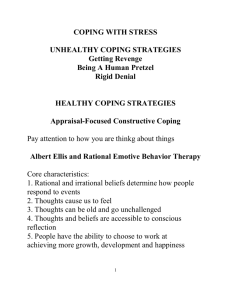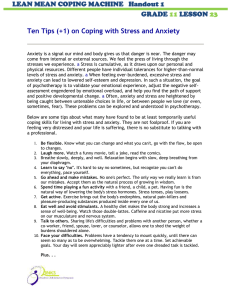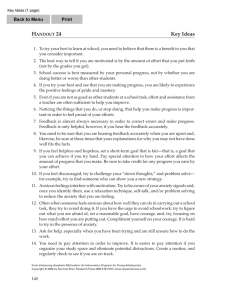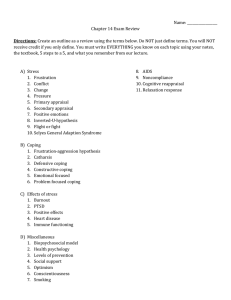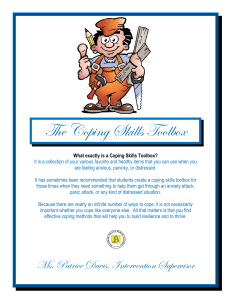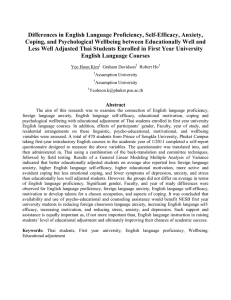Coping with Financial Stress
advertisement
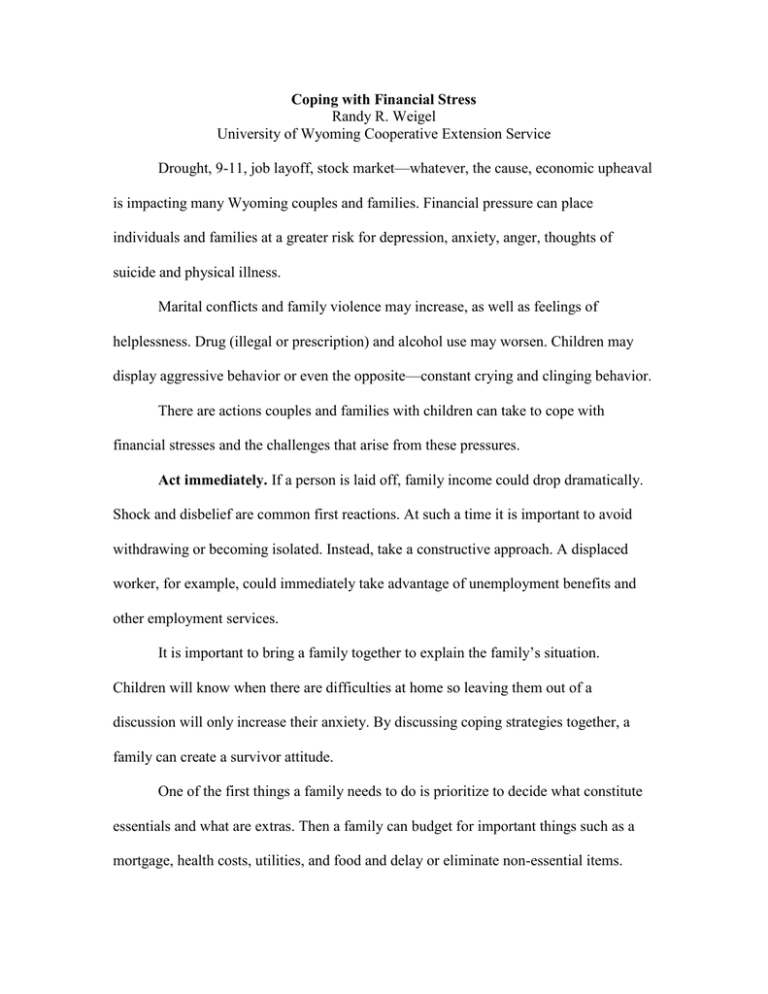
Coping with Financial Stress Randy R. Weigel University of Wyoming Cooperative Extension Service Drought, 9-11, job layoff, stock market—whatever, the cause, economic upheaval is impacting many Wyoming couples and families. Financial pressure can place individuals and families at a greater risk for depression, anxiety, anger, thoughts of suicide and physical illness. Marital conflicts and family violence may increase, as well as feelings of helplessness. Drug (illegal or prescription) and alcohol use may worsen. Children may display aggressive behavior or even the opposite—constant crying and clinging behavior. There are actions couples and families with children can take to cope with financial stresses and the challenges that arise from these pressures. Act immediately. If a person is laid off, family income could drop dramatically. Shock and disbelief are common first reactions. At such a time it is important to avoid withdrawing or becoming isolated. Instead, take a constructive approach. A displaced worker, for example, could immediately take advantage of unemployment benefits and other employment services. It is important to bring a family together to explain the family’s situation. Children will know when there are difficulties at home so leaving them out of a discussion will only increase their anxiety. By discussing coping strategies together, a family can create a survivor attitude. One of the first things a family needs to do is prioritize to decide what constitute essentials and what are extras. Then a family can budget for important things such as a mortgage, health costs, utilities, and food and delay or eliminate non-essential items. Keep the children involved. It is important to let the children actively contribute to a family during this time. For example, if mom has to work longer hours because dad is out of work and she is the one who normally fixes the meals, parents can let the kids help prepare dinner. Making sure that children continue with their household chores helps give a sense of control over the situation. It is important to remember that they are also learning how to handle frustration and crisis. By watching how their parents act in this situation, children are learning about coping skills. Take care of yourself. When in the middle of a financial, personal, or family crisis, maintaining control is important. Staying healthy boosts the endurance and energy needed to deal with problems and stress. When stressed, there is a tendency to neglect health habits, which then can lead to more stress. Eat well, get enough sleep, exercise to relieve stress, and take it easy on the alcohol. The family might also take long walks that can provide health benefits and increase a family’s time together. Maintain routines. Keeping family routines such as eating together, participating in youth activities and maintaining family rules and school expectations can give the family a sense of stability and can reassure children. Families should also continue outside activities when possible and affordable. But they need to be lower cost alternatives. Instead of skiing at a ski resort, for example, cross-country skiing could be considered. Continuing activities can help a family maintain a support network with others. Get a handle on the situation. Remember that other people have been in the similar situation of economic upheaval, and, hard as it is, they have learned to overcome their difficulties. Don’t keep anxiety and anger bottled up. Talk with someone trusted and close about the feelings of anger, confusion and fear. Family members and others can help in times of stress. Try to take one thing at a time. There may be many changes to face, and it is not unusual to try to resolve all problems at once. Solving one problem at a time gives a sense of control over the situation. Finally, keep occupied, active and involved. The loss of a job, for example, can result in extra time to think about troubles. Of course time is needed to plan for the future and to find a new job, but spend some of the extra time helping with a community or church project. Doing something for others will not only help them but also helps to build personal feelings of self-worth. Coping with the stress and pressure of reduced income is not an easy task for individuals or families. There are no easy answers or quick cures. However, by reducing and prioritizing spending as quickly as possible and working with the family to establish priorities, make decisions, and minimize anxiety, individuals and families can help strengthen and prepare themselves for the future.
